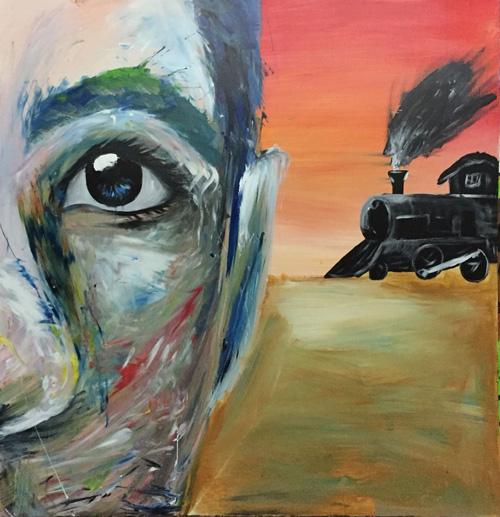“Before taking the first step, inform yourself”: Communities in Mesoamerica act for a regular and safe migration
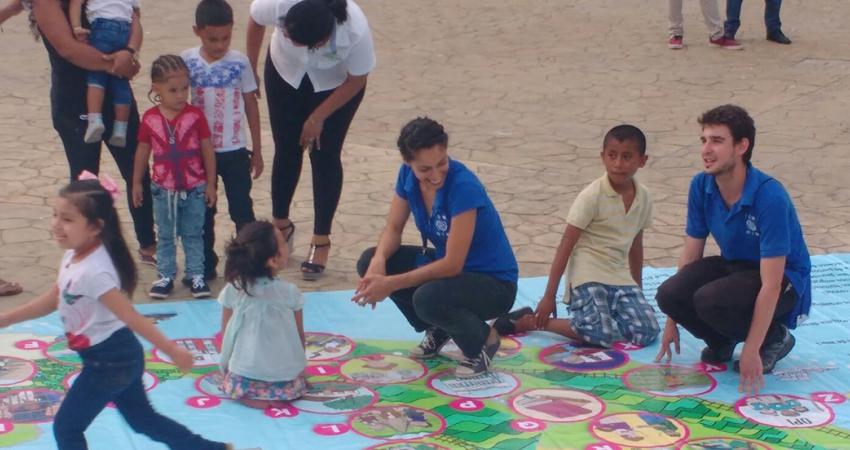
Community leaders in Mexico, El Salvador, Honduras and Costa Rica, with IOM and community art groups, worked together to offer the people from territories with high rates of migration, a series of awareness-raising activities on the risks associated with irregular migration. Through these activities, the communities, and especially youth in Mesoamerica, mobilized to set migration as the focus of attention at the moment, and were able to jointly communicate a message for pacific coexistence in the communities.
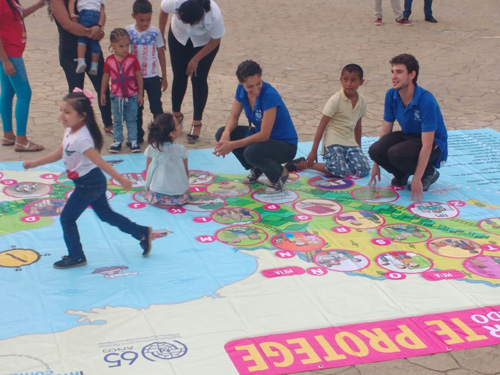
In Honduras, thanks to the Municipality of El Progreso, boys and girls with their families enjoyed an itinerant theatre play that portrays the story of three young people that migrate by train and the risks they are exposed too, communicating to the public a final message: ´´before taking the first step, inform yourself´´. After the migration festival, youth community leaders from different organizations and parishes of El Progreso joined an IOM workshop, in which they strengthened their knowledge about the use of radio to diffuse messages, in this case on regular, safe and orderly migration. As a result, the participants produced three radio podcasts regarding prevention and non-discrimination.
In Catacamas, another community in Honduras, students from the Miguel Rafa Madrid Institute learned about the role art can play as a transformative agent of society, and painted, under the supervisions of the Honduran artist Denis Berrios, a mural titled ´´You also have the right to dream here´´, which represents a variety of elements that form the lives of children, adolescents and migrants, as well as their rights: education, arts, sports, etc.…
 The city of Catacamas has one of the highest rates of expulsion in Honduras. ´´As IOM, we will do all that necessary to promote and guarantee the rights of children and adolescents, especially migrant children, as it is one of the most vulnerable groups´´ mentioned the IOM Chief of Mission for El Salvador, Guatemala and Honduras, Jorge Peraza Breedy.
The city of Catacamas has one of the highest rates of expulsion in Honduras. ´´As IOM, we will do all that necessary to promote and guarantee the rights of children and adolescents, especially migrant children, as it is one of the most vulnerable groups´´ mentioned the IOM Chief of Mission for El Salvador, Guatemala and Honduras, Jorge Peraza Breedy.
In San Salvador, close to 400 people gathered and learned about the state institutions and civil society organizations that offered useful information on what services accessible for migrants.
´´This activity used an innovative methodology to captivate a diverse public in the city so people can come and learn about the rights and services that they are entitled to as migrants´´ explained Cecilia Ramirez, Mesoamerica Program Coordinator in El Salvador.
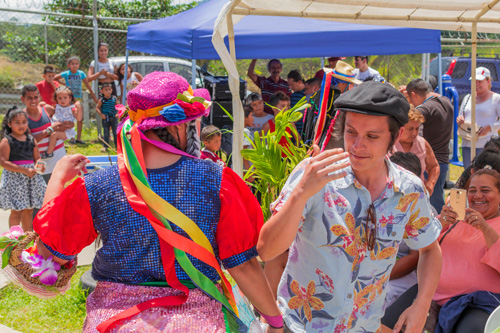
In Mexico, artistic activities took place with the participation and support of a variety of state and civil society organizations in the municipalities of Palenque and Tapachula. The city of Tapachula is historically known for presenting a large number of migrants, not only from Central America but also from other countries in the world. The company ´´Theatre for the End of the World´´ developed a proposal related with the experience it´s director took on his trip to Germany and Turkey, following the migration route of the Balkans. As a result, and in collaboration with the Goethe Institute of Germany, an elaborated proposal was developed which became the centrepiece of the festivals.
In Costa Rica, two communities, a transit one and one that was formed by migration flows, served as the stage for two activities that gathered more than 150 people. La Cruz in the border with Nicaragua, and La Carpio, and urban settlement in San Jose, received local dance and youth music groups, and the play El Muro de la Tortilla by the group Metamorfosis, which combines theatre with contemporary and aerial dance. The play portrays the reasons people decide to migrate and the risks they face such as the violence and deceit that can lead them to become victim during their quest to cross the border.
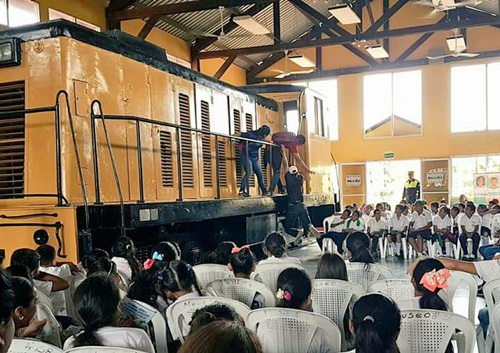
These activities are a part of the broader efforts made by IOM in the region to inform about the risks associated with irregular migration, such as exploitation and trafficking in persons. As youth and children are among the most vulnerable, seeking conscious building spaces through art in communities has proven a successful practice to involve youth members, give them a say, and diffuse key messages for prevention.
The community communication strategy ´´InformArte en Movimiento´´ is part of the IOM Program Strengthening the capacities to protect and assist migrant persons in conditions of vulnerability in Mesoamerica (Mesoamerica Program) funded by the Department of State of the United States.
